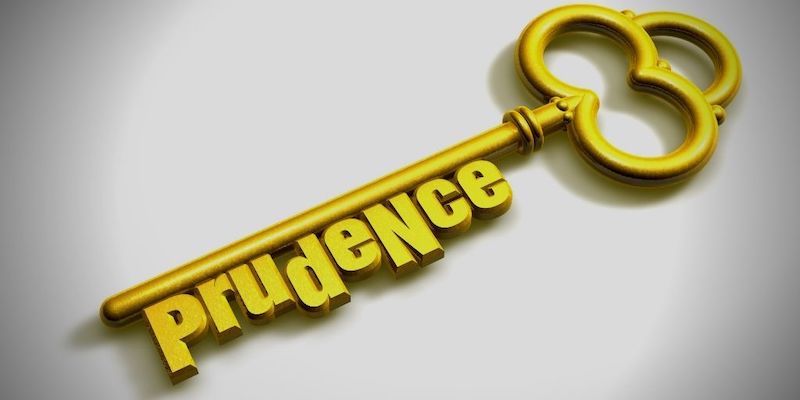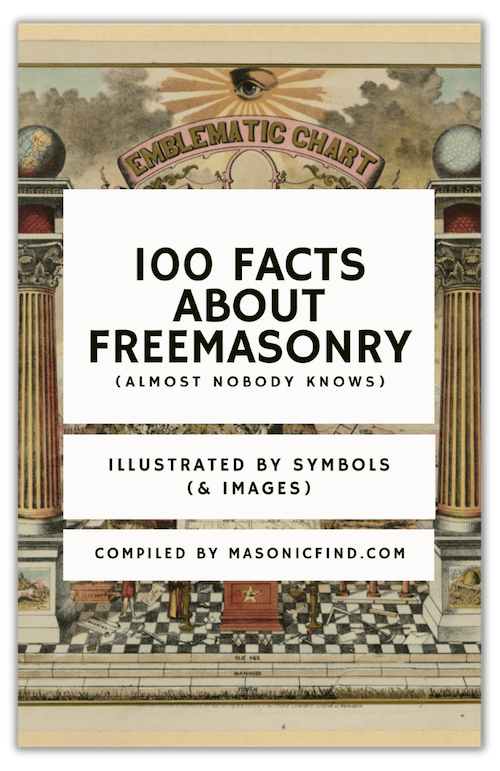In this second article of my series on Masonic virtues, we will be reviewing the importance of the attribute of prudence.
This will be yet another look at how Freemasonry makes good men better.

Origin and Definition
The term comes to us via the Old French prudence via the Latin prudentia, which means “foresight” or practical judgment; it is a contraction of the term providentia, which also means “foresight” (source).
In common parlance, it means to show good judgment, to be discreet, or to be provident (source).
Like temperance, it is a form of self-control.
How to Apply Prudence as Masons
For Masons, prudence is a must-have characteristic.
We take obligations upon ourselves to keep some things discreet (i.e., modes of recognition, etc.). When in a presiding office over the lodge, we must be judicious in all lodge affairs, from paying bills to participating in a Masonic trial.
The Grand Lodge F&AM of Utah’s Monitor states the following:
“Prudence teaches us to regulate our lives and actions agreeably to the dictates of reason, and is that habit by which we wisely judge and prudently determine on all things relative to our present as well as to our future happiness. This virtue should be the peculiar characteristic of every Mason, not only for the government of his conduct while in the Lodge, but also when abroad in the world.”
How to Apply Prudence to Daily Life

As in my article on the Masonic importance of Temperance, this virtue is applicable to the seven aspects of life that an individual must exercise to be a healthy individual and contributor to society:
- Physical
- Spiritual
- Mental
- Social
- Emotional
- Environmental
- Occupational
Physical Prudence
Having good judgment in this regard means ensuring that we are keeping ourselves healthy and safe. Everything from exercising to wearing a seatbelt while driving falls under this category.
Just as with temperance, the more prudent we are physically, the more capable we are to be industrious and serviceable to our fellow man.
Spiritual Prudence
To decide which spiritual path to follow is possibly the most important decision that we can ever make; this decision affects our very moral foundation and outlook on life.
It affects how we view the world, how we interact with others, and what we decide to value. Equally important are the decisions to maintain our spiritual course or to convert to a new path entirely.
Mental Prudence
I have written before about how more wisdom equates to a better ability to contribute to the relief of others.
However, what kind of knowledge we decide to obtain (and consequentially apply to increase our wisdom) will certainly affect this ability also.
For example, I have always wanted to learn how to draw; I never quite had the same passion for installing washers and dryers.
As much as I love to draw, those sketches have only ever benefitted me via entertainment value; the countless washers and dryers that I have hooked up for others, however, have led to comfortable lives for those people.
It should be noted here that I am not putting down any talent here. Art can inspire, and inspiration changes the world every day.
However, there is a time and a place for every talent; some are priorities in some situations, while others are priorities in other situations.
Social Prudence
Throughout my childhood, my parents taught me that my personality would reflect whom I spent time with. There are good influences and there are bad influences.
As Masons, every human being has a claim upon our kind offices; however, this does not mean that we must allow bad influences into our lives. After all, many of us have families and it is our respective duties to shield them from the evils of the world.
Unfortunately, there are some bad people in the world who take advantage.
Though we should be kind and courteous to everyone, we must use good judgment about whom we allow into our lives and, by extension, into the lives of our family, friends, and lodge members.
Emotional Prudence
“to every thing there is a season, and a time to every purpose under heaven ….”
To feel any way is a choice, not a circumstance that is forced upon us. There are proper times to be happy, angry, sad, compassionate, or indifferent.
As I have written before, I argue that we must be slow to anger and quick to forgive; these are the most prudent choices that we can make, especially in the most difficult situations.
Environmental Prudence
Do our choices have a good effect on our surroundings?
Do we leave an area better than how we found it? As human beings, we are stewards of the world; by keeping our environments clean, we ensure that its beauty (a Great Pillar of Masonry and a topic for another time) endures.
Occupational Prudence
Oftentimes at work, we come across situations that require discretion. As an American, HIPAA and doctor-patient confidentiality come to mind; another example is attorney-client privilege.
Many of us throughout the day may encounter other people’s private information that should remain private.
Are we safeguarding that information with our discretion? I certainly hope so, given that we are trusted with such in our pertinent everyday jobs.
As a Mason, a blunder with such delicate data could result in embarrassing the employer and even termination from employment. Then how does he pay his lodge dues or support his lodge’s charities?
Are we making wise decisions in how to go about our respective tasks at work?
Do we consider every factor to ensure efficiency and satisfaction?
Whether for a customer or for a manager, the same principle applies.
Conclusion
How can you be more prudent in your daily life?
How about as a Mason?
As with any virtue, I invite you to examine your life to see where you can improve.
I also invite you to think of any prudent men or women whom you may know and to emulate what prudent example they are setting for you.
As you do so, I believe that you will find that life improves.

FREE DOWNLOAD: 100 FACTS ABOUT FREEMASONRY (ALMOST NOBODY KNOWS)
Join the 10,000+ Brethren from around the world inside our weekly Masonic newsletter and get our best selling ebook for free (usual value: $20).
This article was written for MasonicFind.com by Brandon Cole, SW.